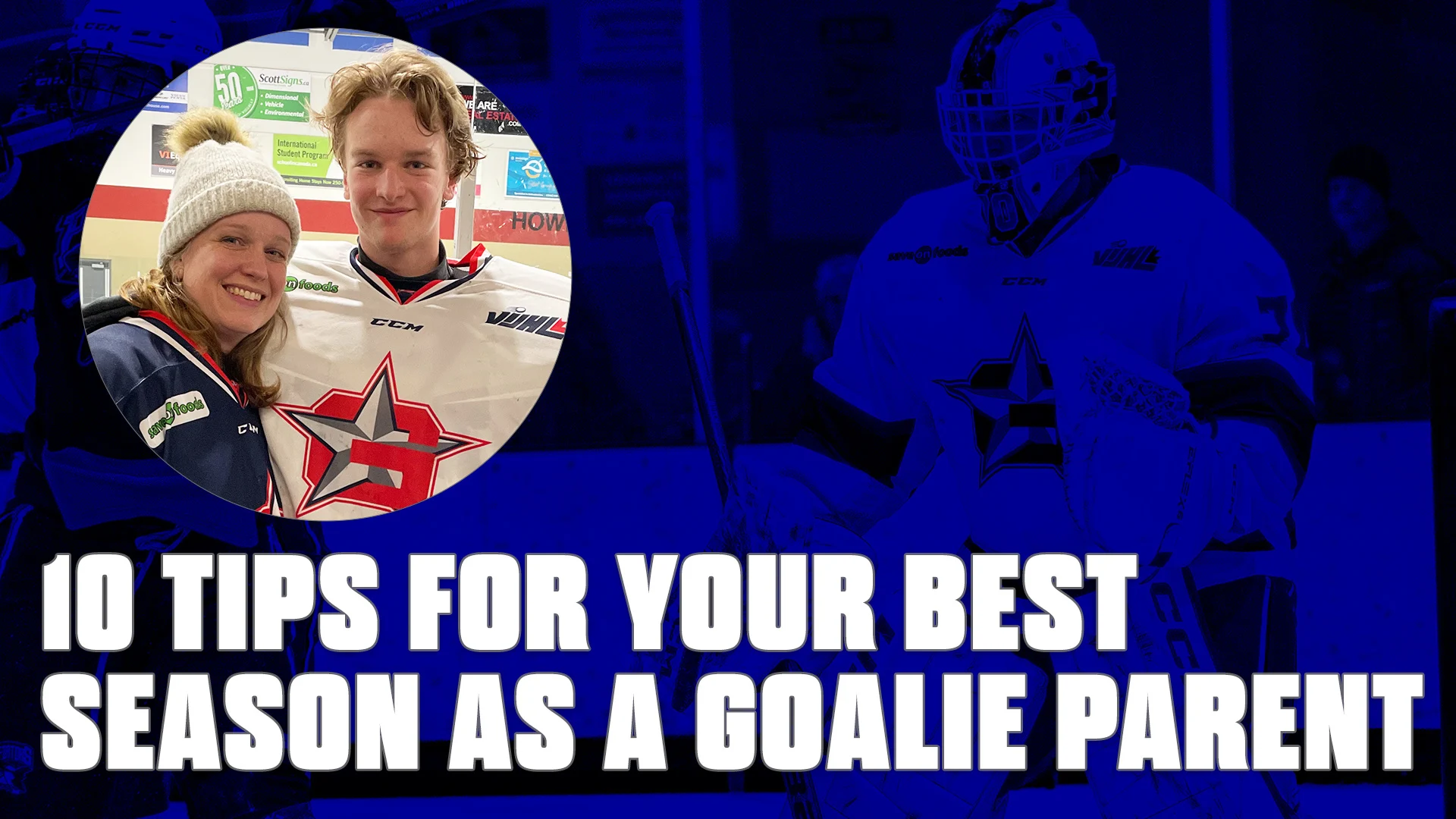
photo: Gus Galloway
There’s nothing like being a goalie and there’s nothing like being a goalie parent.
Goaltender is amongst the toughest positions in sport and a lot of parents discourage their kids from playing goal for this very reason, so congratulations for letting your child pursue their dreams and for supporting them along the way.
I’m sure they have begun their season determined to make it their best ever, and we wanted to share a few tips to help you have a great year as a goalie parent as well. They should help you enjoy the game more while also helping your son or daughter have their best year.
Of course, you know your child better than anyone so consider this advice in the context of your own child, but it’s based on our experience as goalie parents and from talking to some of the best goalies – and their parents — in the world over more than a decade at InGoal.
We have plenty more but a top-10 seems like a good place to start. If you have some thoughts or suggestions of your own, please share them in the comments below.
In no particular order:

Having a friendship with your goalie partner is invaluable and might even last a lifetime.
1. Cheer for the other goalie on your team, even in tryouts.
You want your child to have their best year because of how they play, not because someone else struggles. Having a playing partner they like and respect with a healthy and fun competitive relationship makes for a great season.
We’ve come to believe in Karma or the Hockey Gods as some call it, so don’t even think bad thoughts about the other goalies! 😉
2. Don’t make excuses when talking with your child (or others).
Of course it’s a team game and we win as a team and lose as a team. But it’s not OK to say “if only your defense had covered that guy” or “if only the forwards back-checked.” The bottom line is our job is to be there when our team makes mistakes. If they were perfect you wouldn’t face any shots. Flip it around: Do you want to hear other parents saying “if only the goalie had stopped that shot?”
You want to help but there are much better ways after a tough game (see below).
On a related note, we’re also not fans of “you’re the only reason your team won today.”
3. Don’t compare your child to anyone else.
This is one many of us do, at the very least in our thoughts, but comparison only leads to frustration. Your child is on their own path. Whether their partner is having a better season, or the kid down the road is playing for an (apparently) better team or league just doesn’t matter. If your 14 year old is playing at a lower level than a 13 year old you know, it makes no difference.
Make the most of whatever situation you are in and become the best that you can. You might be a late developer and pass those kids in a few years. You might not. It doesn’t matter. Focus on today, enjoy the game and good things will happen.
Same goes for those of you who are “ahead.” It doesn’t matter.
Be proud of your accomplishments but you still need to keep working hard and keep having fun. Be your own goalie.
Jerry Price had to navigate the challenging path of being a goalie-dad and a goalie-coach to his young son Carey.
4. Find something good each game to celebrate.
Like golf, where one good shot keeps us coming back, one good save or one good play does a world of good for a goalie. I watched a friend’s son get absolutely torched for about a dozen as a very young goalie. He came off the ice with a big smile and said “did you see that glove save?!” That’s a great attitude we can all learn from.
If you’re more experienced you can try something I’ve always done with my son and other goalies I coach: find one thing they did that we were working on and celebrate it.
It may even be something that still ended in a goal, like beating a pass on their feet with speed where others might slide. I tell them that was the highlight of the night for me. They begin to take pride in the details. What you praise gets repeated as you model focusing on the process and not the results (see #6).
5. Don’t say “great game” when it wasn’t.
We know you only want to help but most goalies know when it wasn’t a great game and hate hearing it. Try these instead: I love you. I’m proud of you. I love to watch you play. Sorry it was a tough game but great effort today. Give them a hug.
On a related note, we don’t need to tell you there is zero point in getting mad at your goalie if they have a tough game, do we?
6. Praise effort, not results.
It’s fun to win and it’s hard to lose, but we can make a lot of mistakes and still win, or even get a shutout. We can play a great game and lose. But we’re trying to raise kids who work hard. That’s a skill that will serve them well after hockey.
In fact I’ve told our son many times: “I’ll be fine if you choose not to play hockey next year. I just want you to have something in your life that you love and work hard at.”
So if they skate hard in practice, let them know you noticed.
If they battled hard in a game or hold their head high after a goal, let them know that too. If they do some extra training during the week, high five!
Subscribe to the online magazine for goalies, coaches and goalie parents.
Includes unlimited access to our archives of over 800 articles with 1000+ videos, plus a full year of content with the Pros to come. Gift subscriptions available.
Subscribe to the online magazine for goalies, coaches and goalie parents.
Includes unlimited access to our archives of over 800 articles with 1000+ videos, plus a full year of content with the Pros to come. Gift subscriptions available.
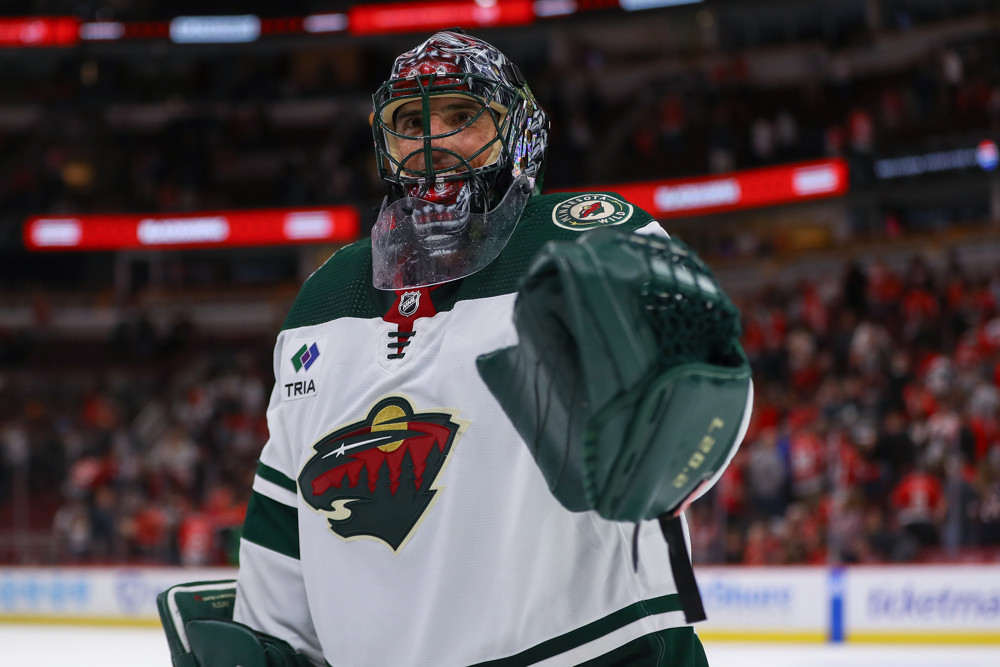
Marc-Andre Fleury. No goaltender is a better example of balancing having fun with an intense desire to compete at all times. (photo: (Photo by Melissa Tamez/Icon Sportswire)
7. Praise having fun too.
Effort matters but it’s not all about hard work. We play to enjoy the sport, right? So praise them when they have fun and show it. Frankly I’m not one of those coaches or parents who want to see their kid hyper-focused and over serious. It’s possible to do both. Yes I get they have to work with a team and a coach who will have their own feelings but to the extent you can, help them be themselves out there.
Ever heard of Marc-Andre Fleury?
Not only does he have fun, he battles like no other while also making the game more enjoyable for everyone around him. He can also focus in the moment and takes the game as seriously as anyone.
8. Help them to become independent.
Our goal in life is to raise happy, confident, independent kids. If their goal is high level hockey like Junior or NCAA, they will at some point be on their own and possibly younger than you imagine. Now is the time to help them get ready.
Can they pack their gear and go through a mental checklist with you to make sure everything is there? Can they pack their own snack for the trip? Can they remember what time the game is? Can you teach them to decide what time they need to leave the house? After the game or practice, can they look after washing their own things? Even the youngest kids can help with some of these things. At some point you should transition to “I’ll be your driver, I’ll be your biggest fan, but you’re in charge. Tell me what time you want to leave and I’ll be ready.” Probably a lot younger than you think.
By the way, we do not subscribe to the old “if they can’t carry their own gear, they can’t play” mantra. Some kids are just too young or small.
When things get tough ask them, what would a Hall of Fame goaltender like Henrik Lundqvist do in this situation? (or their favorite goaltender, or course!)
9. Support their mindset at home.
What can you do at home to help with their mindset? A tonne. We want them to focus on having fun and becoming the best goalie they can. “Control the controllables” is the old cliché, but I often take it a step further and say with a strong mindset even the uncontrollables can work to your advantage because other players and other goalies will not be as strong in a tough moment, so welcome them.
One key: I’m quite upfront about this and let them know I believe they have a strong mindset — one that is a real separator in the game — and I’m trying to help them build on that. I don’t want them thinking I’m just tossing out a throwaway phrase to cool them down in a tough time. I’m serious. Turn negatives into positives.
If they come home and say, “practice sucked. nothing but 2-on-0 and 3-on-0 drills,” try something like: “OK, I get it’s frustrating but you have no control over the practice plan so what can we do? Learn to LOVE those drills! Guess what? They are supposed to score. Every time. If you make a save – it’s huge. Live for those. Battle, get better.”
Or if they complain, “I had 70 shots on goal today and my D were no help,” you might try “OK, it’s tough but that’s 60 more shots to get better than the kid at the other end. Our job is to help when other players make mistakes. There will be goals with 70 shots and that’s hard but if you can build the strength to push through it, you’ll get better.”
There are a million examples. Ask yourself: What do you think a mature world-class goalie would do in this situation? Help them focus on that. We’re here to help them grow as people and those skills will help everything they do away from the game.
10. Model how you want them to grow up as goalies.
Demonstrate the best mindset. If you show stress, they will feel stressed. On the other hand, if they see that you don’t over-react in tough times, they won’t either.
If you want them to treat every game the same, don’t talk about tomorrow being a “big game” or send them to bed extra early to get ready.
If you smile after a tough game they will (eventually) feel better. If you act angry after a tough loss or if you blame their teammates for goals … you get the idea.
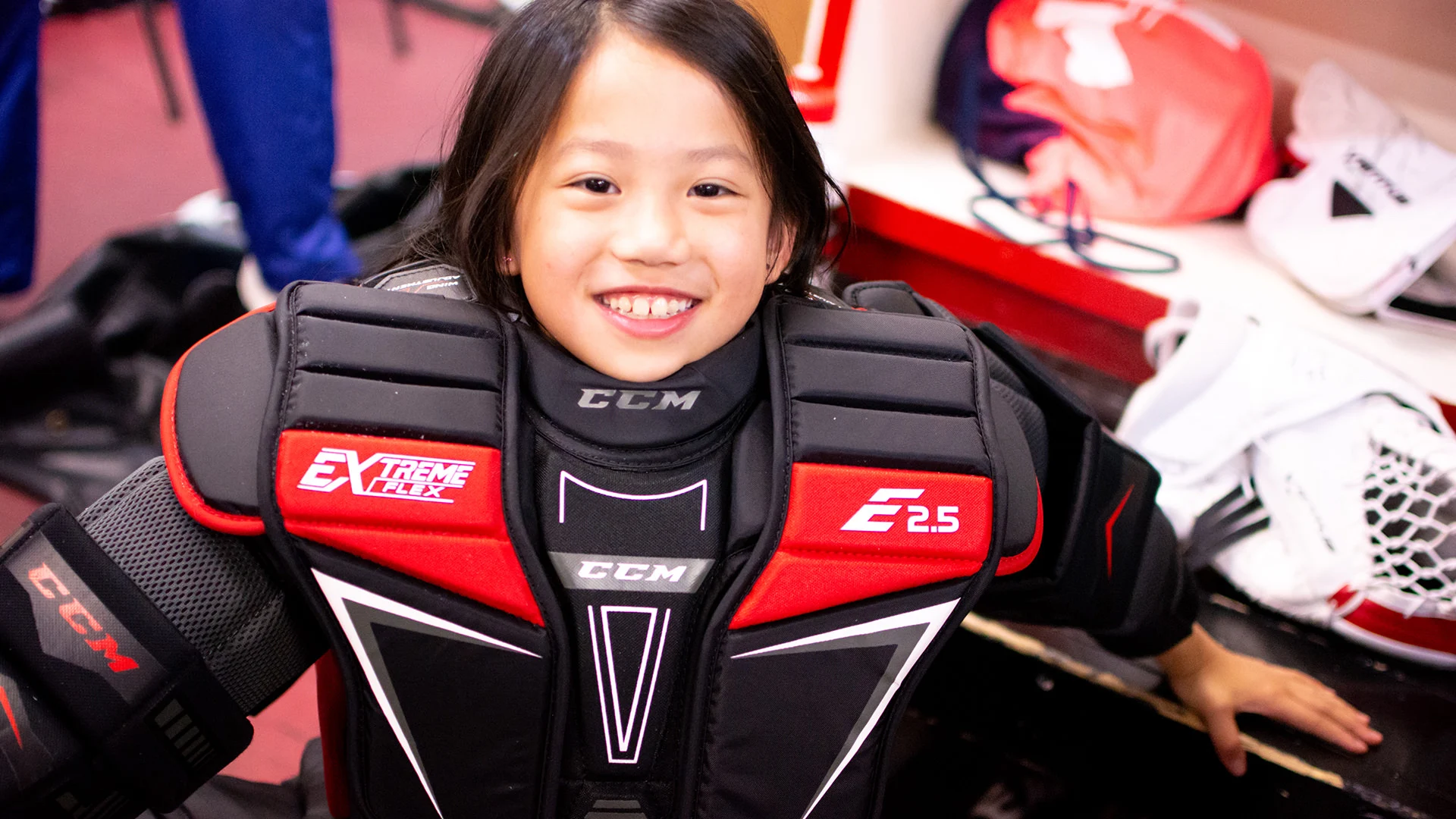
Ultimately, we all want your sons and daughters to have fun and learn lessons that will stick with them for life. Have a great season together!
We could write volumes about each of these – and we probably will – but we hope this is a good start to help us all get the year off to a good start. If you’ve got more tips or more “New (Hockey) Year Resolutions” let us hear them in the comments below, please.
Comments
Let's talk goaltending!
We welcome your contribution to the comments on this and all articles at InGoal. We ask that you keep it positive and appropriate for all - this is a community of goaltenders and we're here for each other! See our comment policy for more information.



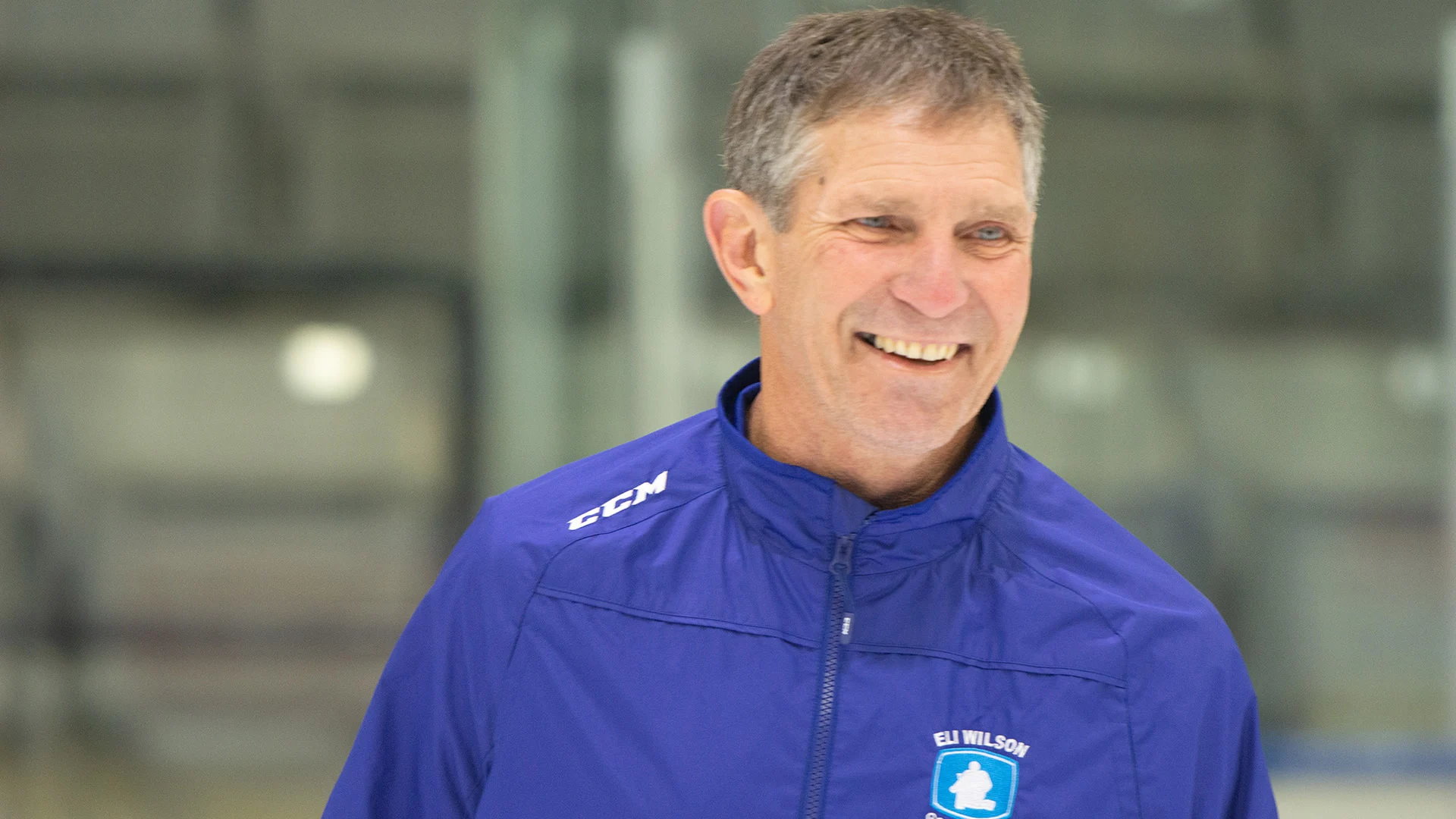
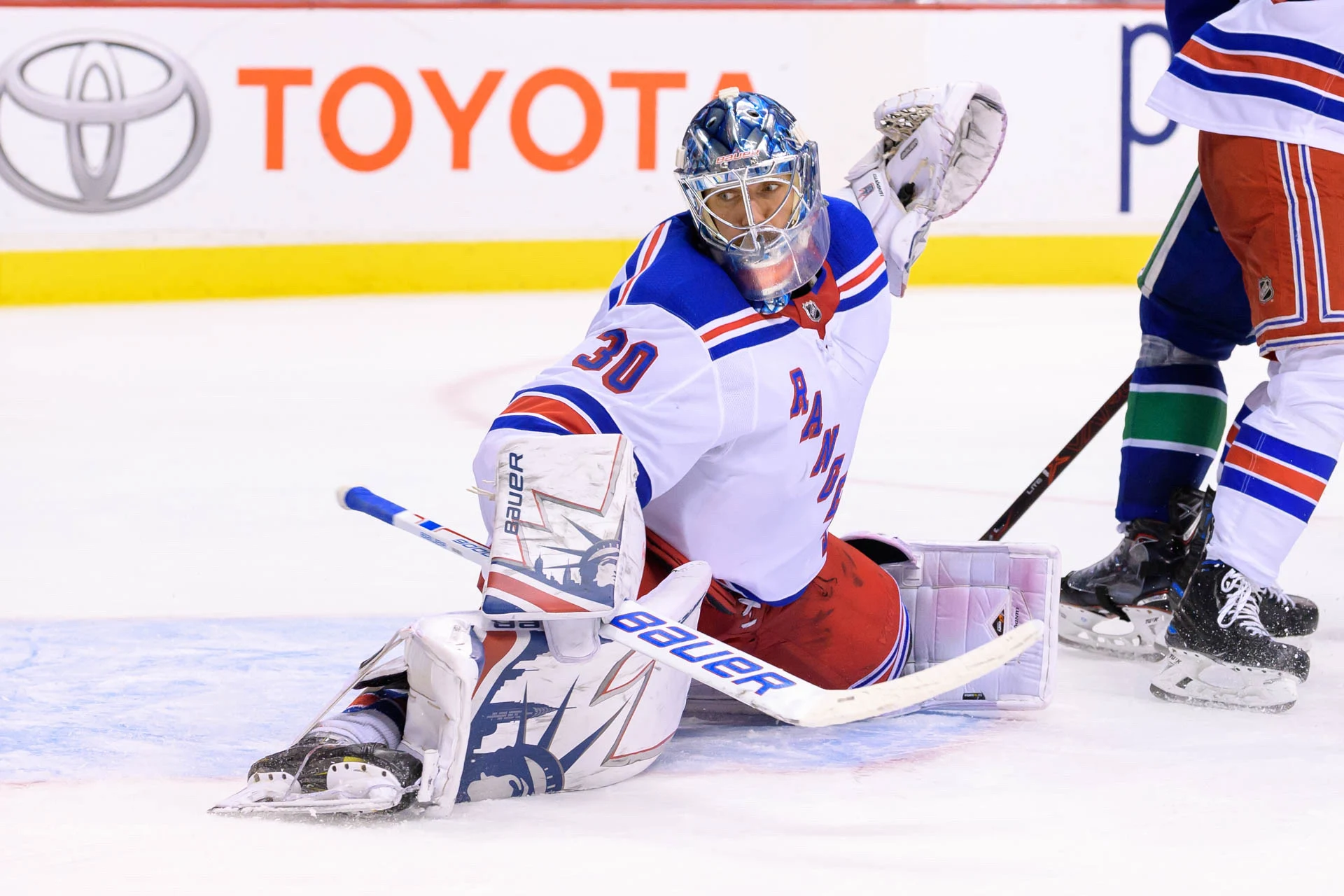

Terrific stuff Dave.
Love it!
Awesome!!
Thank you for sharing.
Louis